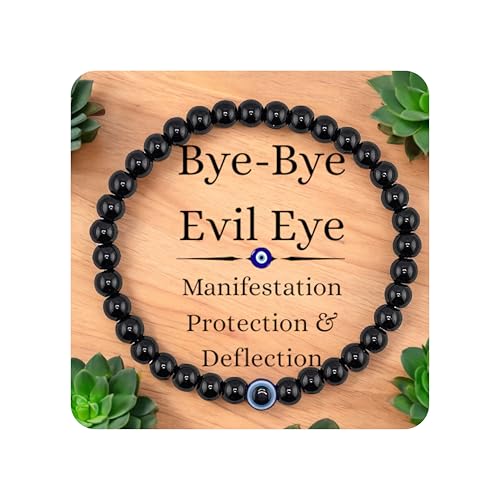11 Spiritual Meanings of Anxiety: Symbolism & Ancient Signs
Anxiety can feel heavy, but it often has important spiritual meanings. It might signal a need for self-awareness or a chance for change in your life. By understanding these meanings, you can learn more about your feelings and connect with your inner self. What if your anxiety is leading you to healing and purpose? Let’s look at these 11 spiritual meanings together, helping you understand this experience better.
Key Takeaways
- Anxiety often symbolizes internal conflicts, prompting self-reflection and a deeper understanding of personal fears and desires.
- In ancient spiritual beliefs, anxiety is viewed as a signal for change, urging individuals to reevaluate their life paths.
- Recognizing anxiety can foster a sense of community, as shared experiences create connections with others facing similar feelings.
- Embracing vulnerability in the face of anxiety encourages personal growth and builds trust in relationships with supportive individuals.
- Mindful practices and self-care rituals are essential for transforming anxiety into a pathway for healing and emotional strength.
The Call to Self-Awareness
Anxiety can prompt you to look inward and build self-awareness. It invites you to understand your feelings, thoughts, and actions.
Try self-reflection methods like journaling or taking quiet walks to discover your inner self. Use mindful breathing techniques to calm your mind and find the source of your anxiety.
By doing this, you face your fears and develop a kinder understanding of yourself. This path to self-awareness helps you connect with who you truly are and how you relate to others.
Use these tools to gain clarity and acceptance. Embrace the journey, and enjoy the growth that comes with it.
A Sign of Transformation
Recognizing your anxiety can empower you.
In tough times, you can start a journey of growth. This path helps you learn about yourself.
If you feel anxious, ask yourself what you truly want and what changes you need. Each anxious moment can guide you to let go of the past and accept new beginnings.
You aren’t alone; many people feel this way. By acknowledging your anxiety, you take strong steps forward. You open the door to better understanding and significant change.
The Need for Spiritual Growth
As you face life’s challenges, the need for spiritual growth often stands out. Embracing your spiritual journey leads to personal growth, helping you connect more deeply with yourself and others.
Consider these key aspects of growth:
- Self-Reflection: Take time to assess your thoughts and feelings. Understand your inner self.
- Mindfulness: Stay present. Focus on the moment and what it teaches you.
- Community Connection: Build relationships with supportive people who share your values.
- Embrace Change: Accept change as a chance for new insights and growth.
Engaging in these practices can enhance your spiritual journey. Enjoy the process of discovering more about yourself and your connections with others.
Connecting With Inner Wisdom
Tuning into your inner wisdom opens the door to deep understanding. This process begins with reflection. Take time to listen to your heart’s whispers. Trust your inner guidance. This helps you manage anxiety and strengthens your connection to yourself and others.
As you engage with this wisdom, know that feeling vulnerable is normal—you aren’t alone. Each moment spent reflecting brings clarity and comfort, leading you to a more stable path. Embrace this journey. Your insights are valuable and deserve respect.
Breaking Free From Past Patterns
Breaking Free From Past Patterns
Understanding how past patterns shape your present is crucial for healing anxiety. Here are some clear steps to help you break free from these cycles:
- Reflect: Look back at your experiences to find common themes in your thoughts and actions.
- Acknowledge: Accept how these patterns affected you. Avoid self-blame and judgment.
- Reframe: Change your viewpoint by identifying positive lessons from those experiences.
- Act: Make small, intentional changes in your daily routine to form new, healthier habits.
Each step you take moves you closer to overcoming anxiety.
The Importance of Trust and Faith
Trust and faith help you manage anxiety and provide security in uncertain times. Engaging in trust exercises builds your inner strength.
These practices encourage you to embrace the present moment and accept uncertainty. Your journey of faith connects you to something greater than yourself.
By fostering trust, you create a safe space to understand and explore your anxiety instead of fearing it. As you embrace this journey, you realize that you aren’t alone; a supportive community can uplift you.
Nurturing trust and faith allows hope to shine through, guiding you as you face your anxiety.
Embracing Vulnerability
Embracing vulnerability can change how you view anxiety. It helps you see anxiety as part of being human, not as a flaw. Accepting vulnerability allows you to express yourself authentically.
Here are some steps to begin:
- Acknowledge Your Feelings: Recognize that feeling anxious is a normal part of life.
- Share Your Experiences: Talk to trusted friends or family about your struggles. This builds connections.
- Practice Self-Compassion: Be kind to yourself. Remember that it’s okay to feel vulnerable.
- Seek Support: Join groups or communities that understand and accept vulnerability. Sharing experiences can be comforting.
A Gateway to Healing
Anxiety can feel intense, but it can lead to healing if you take time to understand it. Mindful practices can help you build emotional strength for your healing journey.
Adding self-care rituals, like meditation and grounding exercises, can promote calmness and support your well-being.
Take a holistic approach to wellness, recognizing that each emotion contributes to your growth. This journey isn’t only about easing discomfort; it’s about finding your inner strength to overcome anxiety.
The Role of Intuition
When you connect with your intuition, you discover important insights about your anxiety. Building this connection helps you manage your emotions better.
Here are simple practices to develop your intuition:
- Meditation: Take quiet moments to focus inward and calm your mind.
- Journaling: Record your thoughts and feelings. This can reveal patterns.
- Nature Walks: Spend time outside. Let nature inspire your reflections.
- Body Awareness: Pay attention to your physical sensations. They can show how you feel emotionally.
These practices help you feel more at home with yourself.
Trusting your intuition can guide you in understanding your anxiety, leading to healing and personal growth.
Balancing Energy and Emotion
To balance your energy and emotions, first recognize how they influence each other. Your feelings reflect your inner state. For example, if you feel anxious, it may signal a misalignment in your energy. Acknowledging these emotions can help restore balance.
Practice meditation or breathwork to promote emotional stability and align your energy. Accepting your emotions is important; they don’t define who you are.
Finding Purpose in the Chaos
Finding purpose during chaotic times can be difficult, but it can also reveal your inner strength. Focus on these clear steps to find clarity in chaos:
- Reflect on your emotions. Notice what you feel during difficult times.
- Identify your core values. Let these guide your choices.
- Connect with others. Sharing experiences helps build a sense of community.
- Act on your intentions. Small steps can help you feel more in control.
As you move through life’s ups and downs, remember that challenges can shape your journey.
Use this time for growth. Within chaos, there’s potential for meaningful change and self-discovery.
Share your journey and explore new paths with an open heart.
Frequently Asked Questions
How Can Anxiety Manifest Differently in Various Individuals?
Anxiety shows itself in different ways based on individual triggers and emotions. You may have racing thoughts or feel physical tension. Others might prefer to withdraw or isolate themselves. Understanding your own patterns is essential. Recognizing how your anxiety manifests can help you find the right support. Remember, you’re not alone, and there are ways to manage it effectively.
What Role Does Meditation Play in Alleviating Anxiety?
Meditation is a strong tool for managing anxiety. Through guided meditation and mindfulness, you can calm your thoughts and find peace. These practices help you connect with yourself and others, making you feel supported on your journey. You can use meditation to create healing moments in your day, reduce stress, and enhance your overall well-being.
Can Anxiety Be a Sign of Spiritual Awakening?
Anxiety can signal a need for spiritual growth. Feeling overwhelmed is normal; it encourages emotional release and self-reflection. Embrace this path. Remember, you are not alone in your quest for deeper connection and belonging. Many others share this journey with you.
How Do Cultural Beliefs Affect the Perception of Anxiety?
Cultural beliefs influence how you view anxiety, often shaped by stigma from society. Recognizing your beliefs can help create understanding and compassion. It shows that you are not alone in facing your challenges. You share this journey with others.
What Are Practical Steps to Manage Anxiety Spiritually?
To manage anxiety spiritually, focus on mindful breathing and energy clearing rituals. Mindful breathing helps you center yourself and release tension. Energy clearing rituals connect you to your inner self and the universe. Both practices can reduce anxiety and enhance your spiritual well-being.

Liza Stockholm is an esteemed spiritual guide and the visionary behind Spiritual with Liza. With a profound passion for empowering others on their spiritual journey, Liza offers a blend of educational content and personal guidance. Her expertise in spirituality is rooted in years of dedicated practice and study, making her a trusted companion for those seeking enlightenment and inner peace.












